Ford emphasized from the outset that a tight deadline was in place. Failure to produce an interface meeting their specifications would lead them to default to their standard design for all models. Hence, consistent feedback from product owners was vital. As a result, we scheduled bi-weekly feedback meetings to ensure alignment.
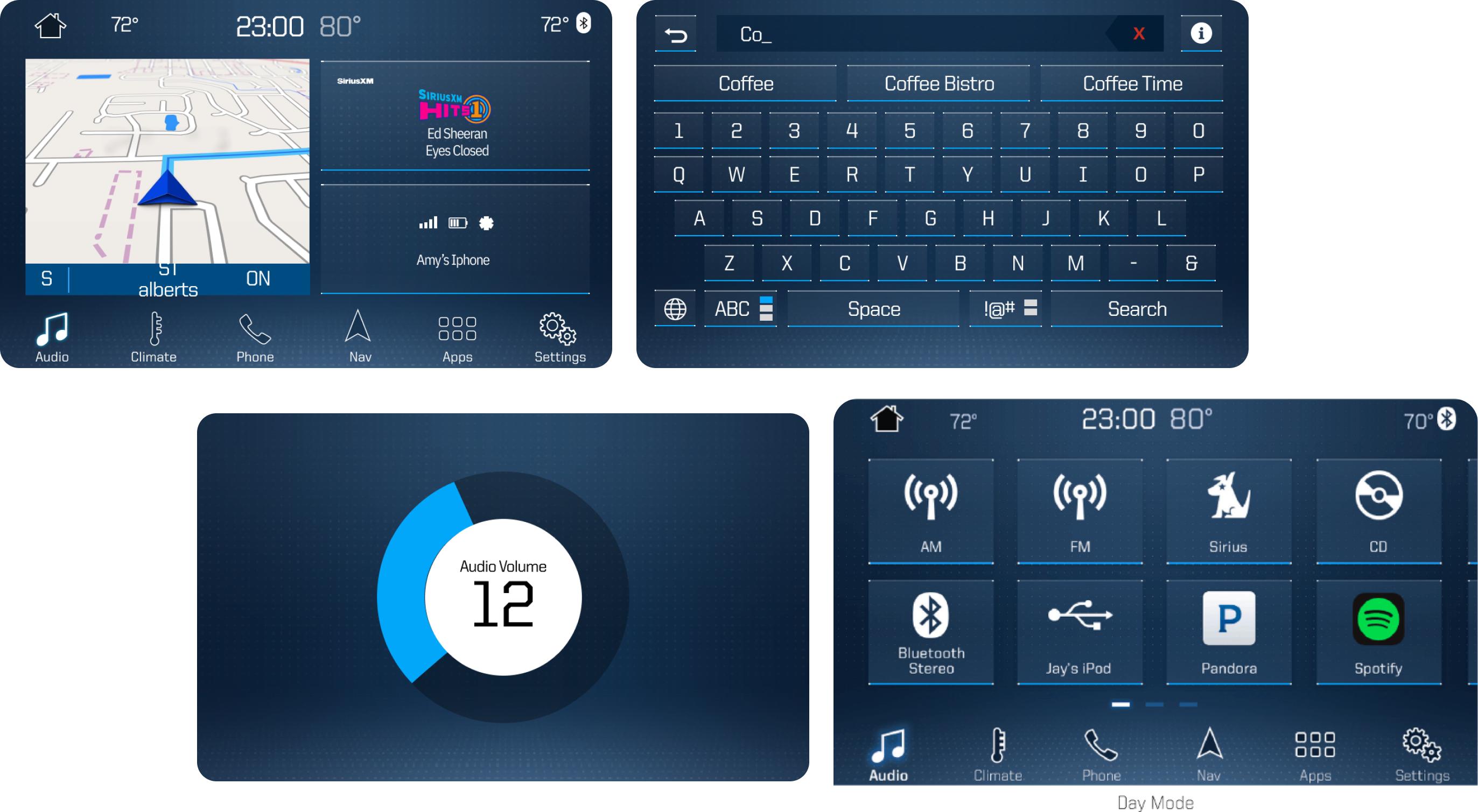
Both the digital dashboard (Cluster) & the entertainment system (Sync Gen 3) were to be redesigned. It made sense to approach both as two correlating projects. This allowed my team and I to work faster given the tight deadline we had. I was assigned the task of redesigning the Sync Gen 3 while another designer worked on the Cluster.
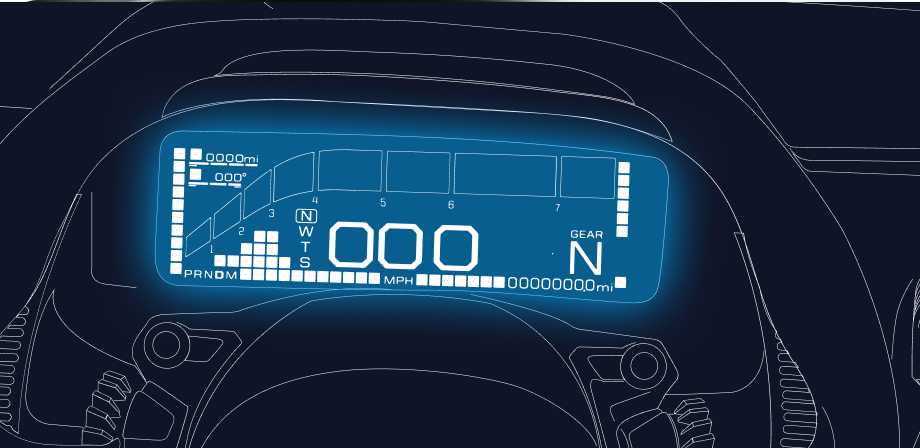
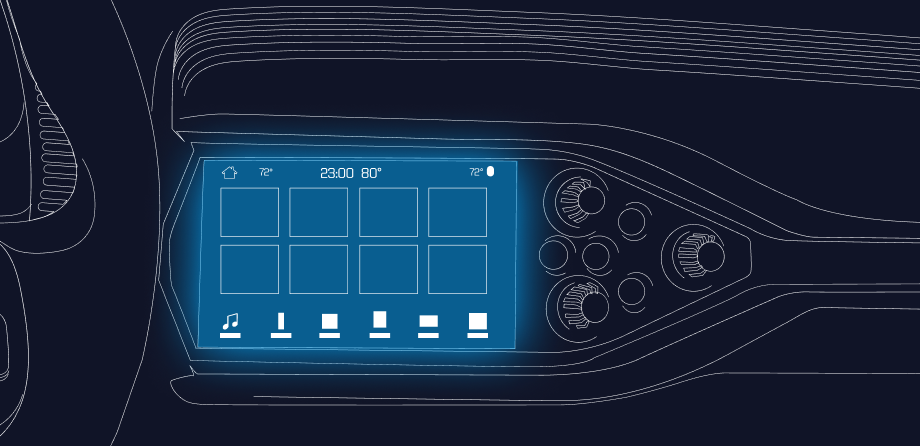
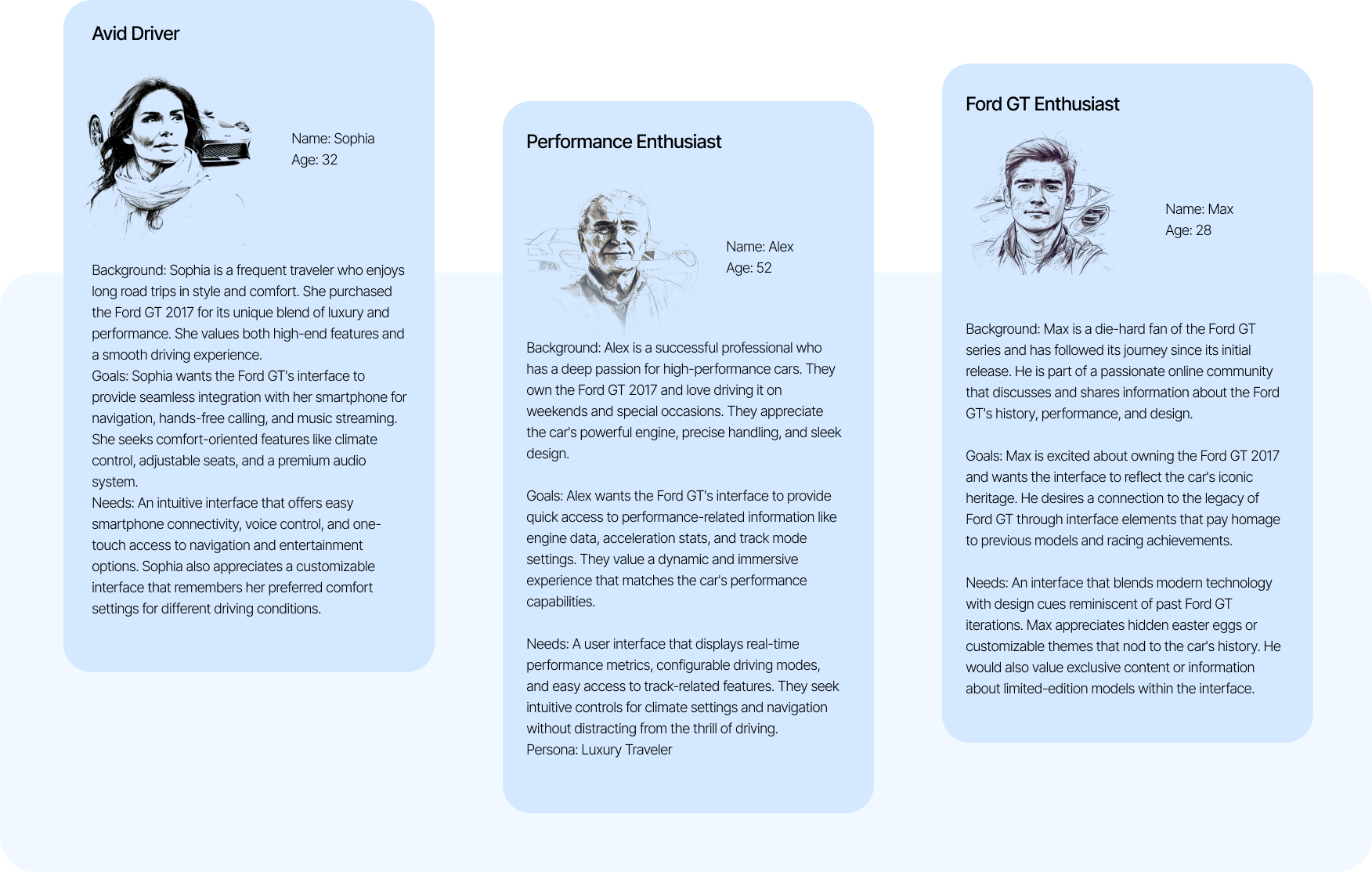
I reached out to the product owners to get a better understanding on who would be the potential users of the Ford GT. They had already done their own research and shared their findings. We also decided to take it further by conducting a survey on the websites. Due to the GT’s cult following there was already an anticipation for the upcoming model so it was eaiser to collect data. I discovered that the demograph in consumers had become much younger over the years. Your average buyer was now between the ages of 25-54.
A lot of anticipation built, thanks to Ford’s marketing and fans of the previous versions
Demograph of a much younger audience in terms of potential buyers.
Audience saw GT as “futuristic” and advanced in tech.
Audience saw GT as “futuristic” and advanced in tech.

If we were going to work in parallel to the cluster team we needed to make sure we were using up every valuable second building and creating. So i coordinated with the Cluster Team and was able to brake down my time to ensure i was making progress each week.
The inspiration for the design was based of other fast moving vehicles including a fighter jet. A common theme among them was how they favored fine lines and a more simpler “straightforward design” this was done in-order to minimize any distractions for the driver/pilot. When traveling at such high speed there is less room for error and less time to look down at your controls to make changes. This inspiration led me to come up with some good ideas and concepts which I used in the final design.
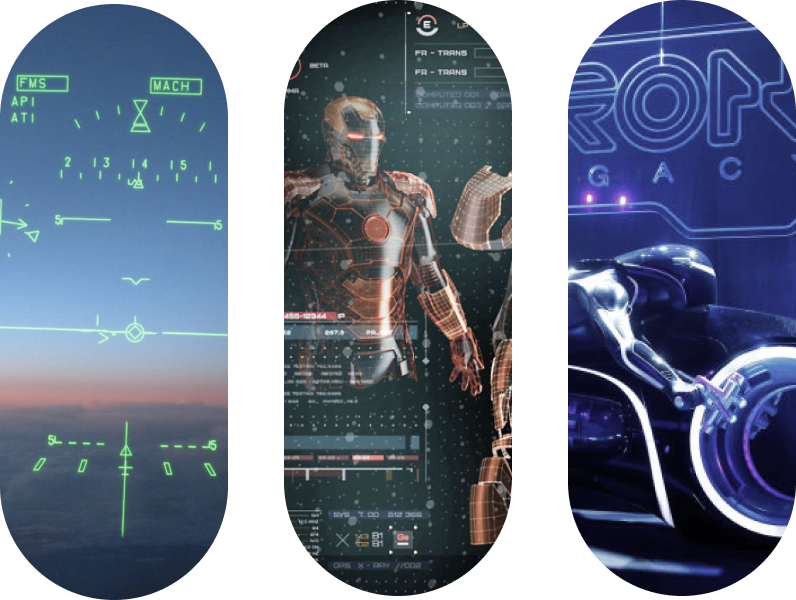

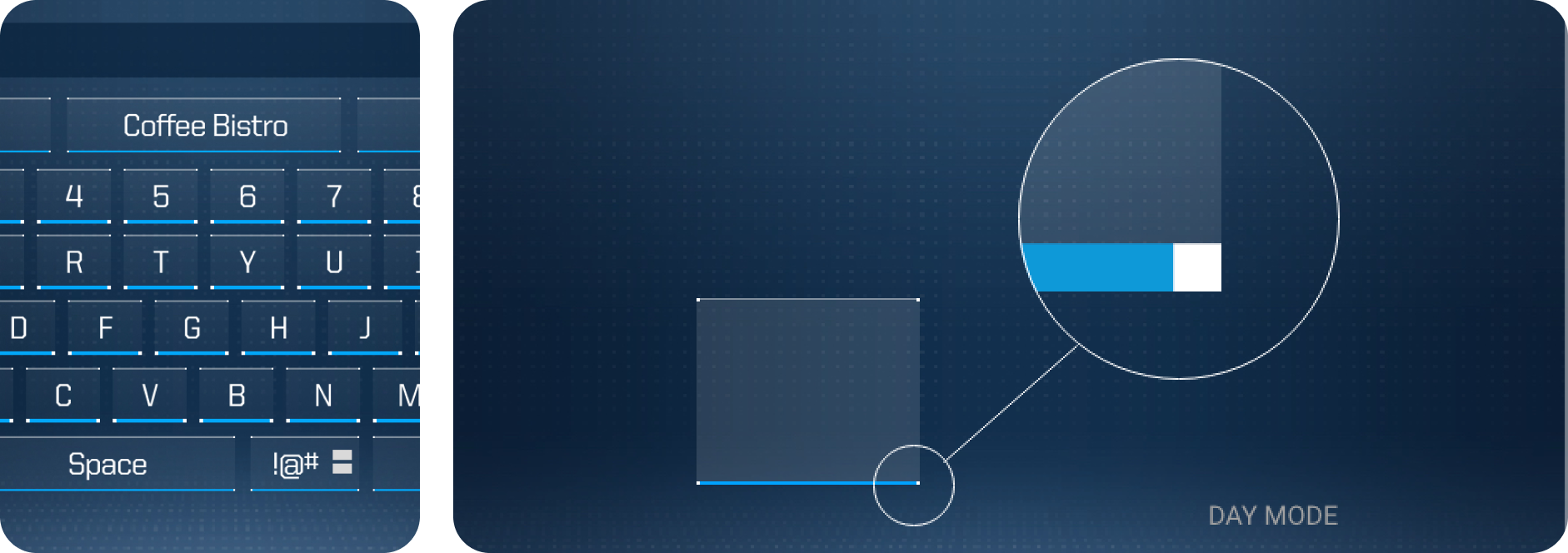
I submitted the Sync Gen 3 design for Ford to evaluate in their prototype GT. Ford conducted tests across various lighting conditions and while they found that the Sync Gen 3 integrated effectively with the Cluster, they observed that the button borders were excessively thick. This prominence caused the buttons to overly stand out, consequently overshadowing the adjacent features. With that in mind I reduced the weight of the button borders and tweaked the color. This change ensured the buttons remained noticeable but harmonized better with the overall design.
Once the final designs where approved we began the task of creating a robust design system in order to have design control, making sure each asset was pixel perfect. I personally worked in over 5000 of the 10000 assets created.We collaborated closely with the Ford Team to label each asset in relation to its location and use on the UI. This made the daunting task very manageable and left less room for errors or duplication. I also worked with my team to re-create every UI screen for reference. Ford - dev team was was able to work efficiently with the files without a hitch.
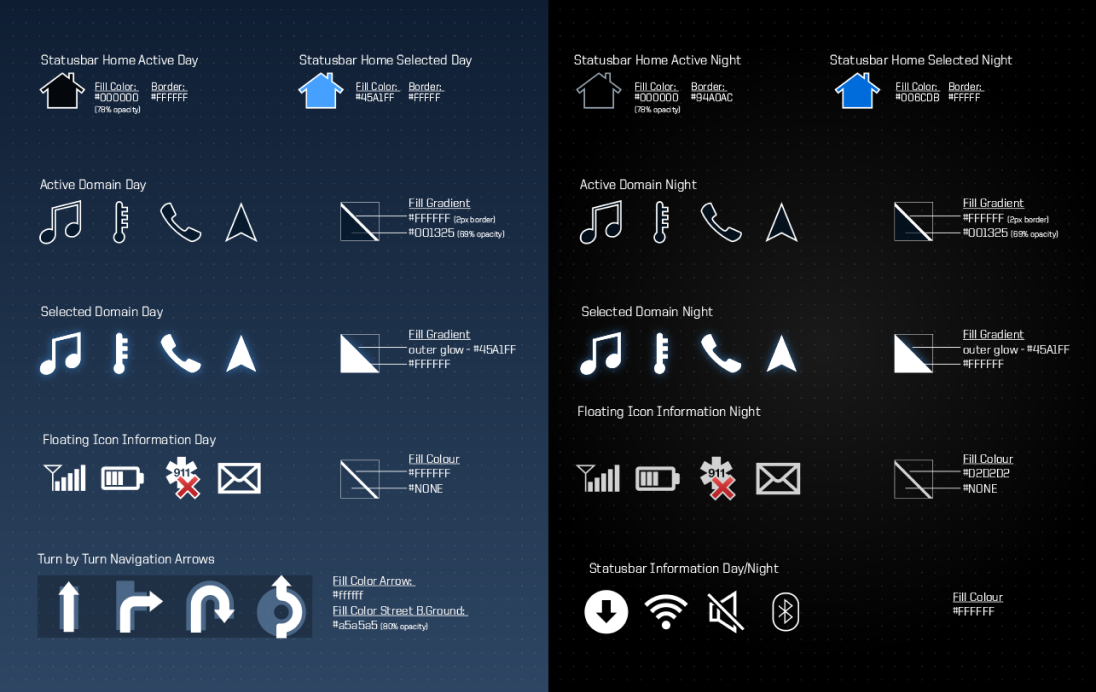
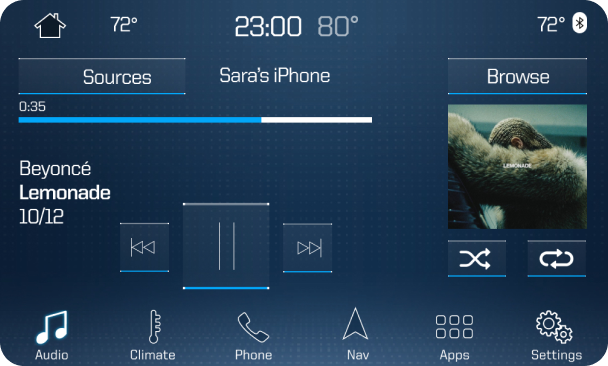
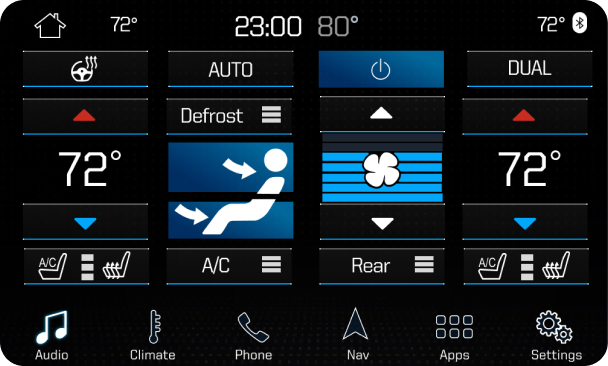
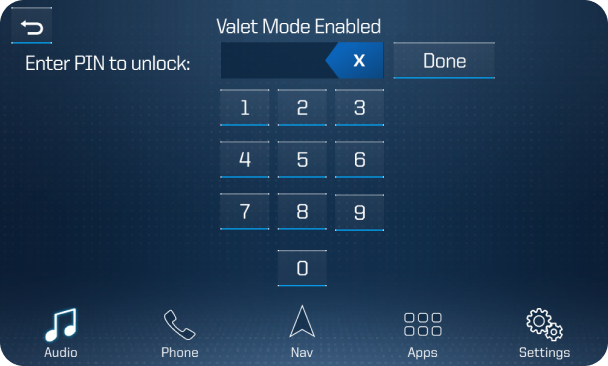
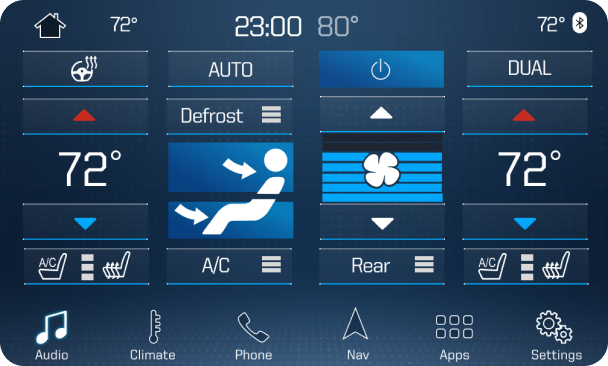
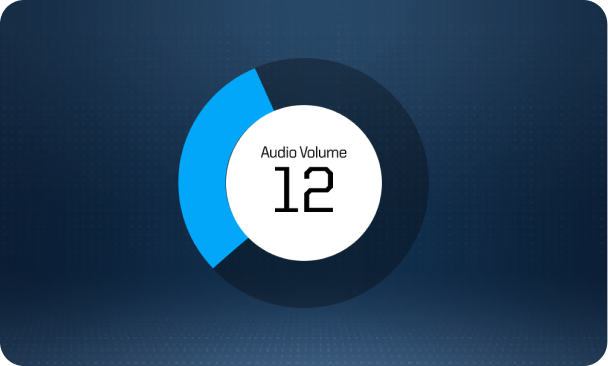
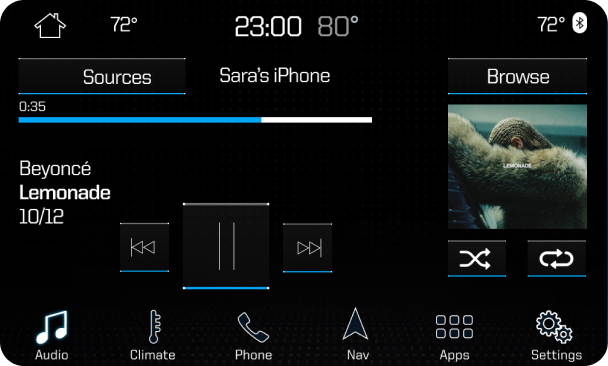

Ford was impressed with the overall designs. Even Nick Terzes, Engineering Supervisor, Ford said “The team’s creativity, attention to detail and understanding of our brand have put the GT at the forefront of the Supercar HMI game”. Only 138 examples of the 2017 Ford GT were ever built and they tend to be valued around or above $1 million. If I had more time on the project I would have liked to explore how the design might be able to work with other smart devices in the form of an app or smart watch that syncs to the vehicle.